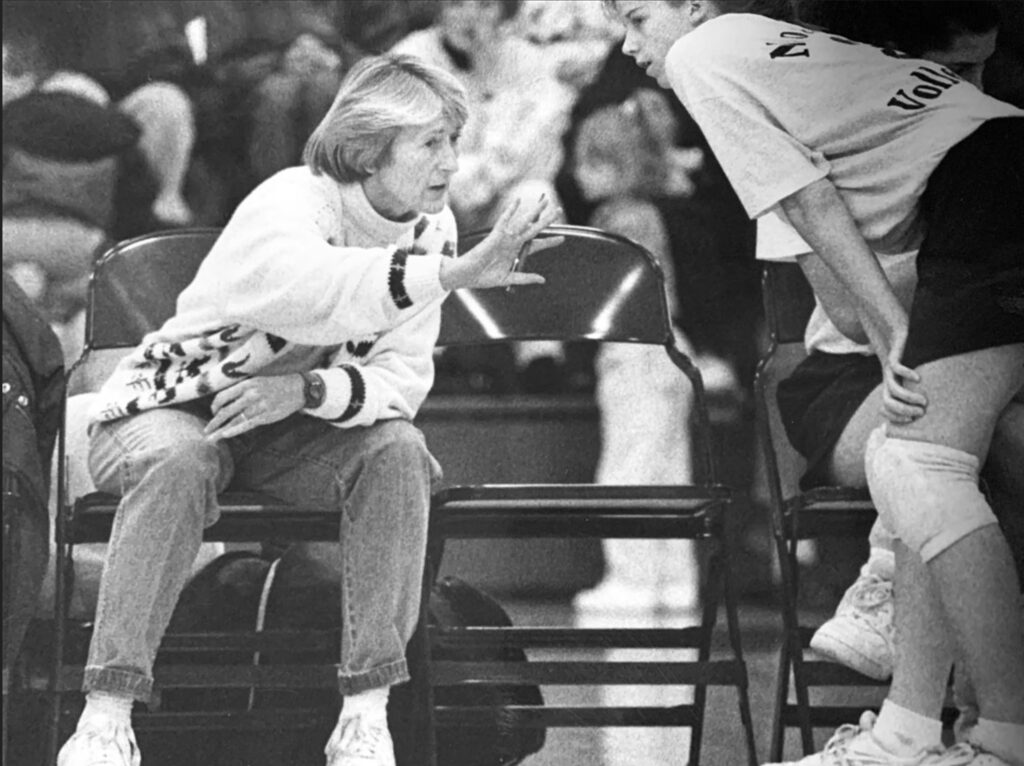Fellow official and former Norwin girls volleyball coach Sheron Watson is most successful woman coach in U.S. high school sports history

Pennsylvania's Largest Most Experienced Chapter
Congratulations to Rich Kaminski (R1) and Joe Hardiman (R2) who have been selected to work the AA State Final this Saturday. They will also be line judges for the AAA Championship Match.
The Chapter would also like to recognize all the GTCCVO officials who worked the WPIAL and PIAA State playoffs this year.
The boys 2022 WPIAL final will be held Wednesday, May 25 at Robert Morris University in Moon Twp. AA at 6:00 pm AAA at 8:00 pm. AA – OLSH vs Montour officials are Jeff Beavers & Patti Nellis. AAA – Seneca Valley vs North Allegheny officials are Greg Lockley & Rynn Lynn. Line judges are Milan Yekich and Kyle Louke. The consolation matches are at North Allegheny May 25-6:00 pm and 8:00 pm. AA – North Catholic vs Ambridge officials are Eric Ressler & Rich Kaminski. AAA – Shaler vs Penn Trafford officials are Dante Parente and Joe Hardiman. Line judges are Tim Lutton and Mike Bruno. Much Success to our officials! If you are available, go watch some great volleyball!
Sorry for all the emails about warm up procedure for WPIAL playoffs, but I just received the email that was sent to the AD’s from the WPIAL:
The HOME Team will be the higher seeded team and will select the bench. Teams will remain on same bench for match duration.
WPIAL Playoff Warm-Up protocol will be as follows: 20 minutes (2, 4, 4, 5, 5) with the clock starting at the end of the captain’s meeting.
HOME Team will select warm-up order.
1. 2 minutes Shared Court
2. 4 minutes Team A – Full Court
3. 4 minutes Team B – Full Court
4. 5 minutes Team A – Full Court
5. 5 minutes Team B – Full Court
As I posted yesterday, the warm up time for WPIAL will be 2-4-4-5-5…which means 2 minutes both teams warm up together…lower seed gets 1st 4 minutes, higher seed gets 2nd 4..lower seed 5 minutes higher seed last 5 minutes. Please follow this protocol at your site so everyone is on the same page and this warm up is continued throughout the WPIAL playoffs.
Congratulations to our Golden Triangle officials who have received play off matches. The R1 official should contact his crew to determine what color shirt will be worn so all officials match. I suggest you take both shirts just in case. As playoffs continue, make sure to check your arbiter to accept the match ASAP. If you see an official on your crew that has not accepted in a timely manner, please contact them.
The warm up protocol as per Mike McDonald will be 2-4-4-5-5. Also, the higher seed is the home team at a neutral location. So they get the choice of bench for the match. That is not part of the choice for the coin toss. Only serve or receive.
Much success! Represent The GTCCVO chapter well. If you are not working, please go out and support your fellow official.
This is the last week of regular season play for boys volleyball. Playoffs will begin next week. It has come to my attention that coaches receiving a yellow card have been told they must sit. This rule was changed I believe in 2021. The head coach does NOT have to sit:
When a yellow card is issued for
unsporting conduct to the head
coach, assistant coach(es) or
team bench the head coach will
no longer be required to remain
seated.
▪ If a red unsporting conduct card
is issued to the head coach,
assistant coach(es) or team
bench, the head coach will be
required to remain seated for
the duration of the match.
Please make sure you are following the correct and current protocols when officiating.
Much success the rest of your season and during playoffs.
For those of you who attended the scorekeeping meeting on Sunday, I want to apologize for the miscommunication. We thought it would be a good idea to have this meeting since we have officials who do not know how to scorekeep, however it was not planned out very well. That being said, I am attaching a link with a video from “NFHS Scoresheet Instructions” it is a 20 minute video. Please take the time to watch and learn. If you have any questions, you may contact Tim Lutton or Cary Newland. Also, please make sure that you are printing the names of the officials for the match in the scorebook and the R2 is initialing after each set that they verified the score.
https://www.nfhs.org/sports-resource-content/volleyball-scoresheet-instructions-video/#
Hi everyone,
Glenn Reid is in dire need of some officials for this upcoming weekend for NEQ 3 in Philadelphia. The tournament is being held Friday, April 22nd through Sunday, April 24th. Here are the ammenities:
Match fee: $38 – National, $36 – Jr National, $34 – Regional, $31 – Provisional
FREE PARKING!
$20 per diem for full day, $10 per diem for half day (CASH)
Hotel room provided if needed
The greatest farmer’s market in the world is across the street from the venue: Reading Terminal Market (https://readingterminalmarket.org)
You don’t want to make fellow officials work too many matches in a row.
If you are all available for all, some, one or even a half day, please contact Glenn ASAP [email protected] 410-967-1990
